Car executives: Sacrifice face for money
![]() 09/02 2024
09/02 2024
![]() 469
469
Original by New Energy View (ID: xinnengyuanqianzhan)

With the rise of new energy vehicles and the acceleration of intelligence trends, the automotive industry is facing unprecedented competition. Amid the fiercely competitive market, car executives have resorted to aggressive marketing tactics to stand out and attract consumers' attention.
Driven by the attention economy and over-marketing, some car executives' remarks have frequently backfired. Behind their bombastic marketing pitches lie significant deviations from the truth, deliberate exaggerations, and self-deception that fails to impress. This has sparked widespread ridicule among netizens.
'Sacrificing face' has become a common marketing practice in the automotive industry in recent years. This phenomenon has not only confused consumers but also prompted in-depth reflections on the marketing strategies of the automotive industry.
1. As long as cars sell well, is it okay to sacrifice face?
The voices of industry leaders are particularly loud in the automotive circle. 'Sacrificing face' is never short of industry leaders who are thick-skinned and unafraid of pain. The louder the sound of money counting, the thicker their faces and the more they get slapped, but the less they fear the pain.
Wang Chuanfu, Chairman and CEO of BYD, has expressed doubts about autonomous driving technology on various occasions, even going so far as to call it a hoax.
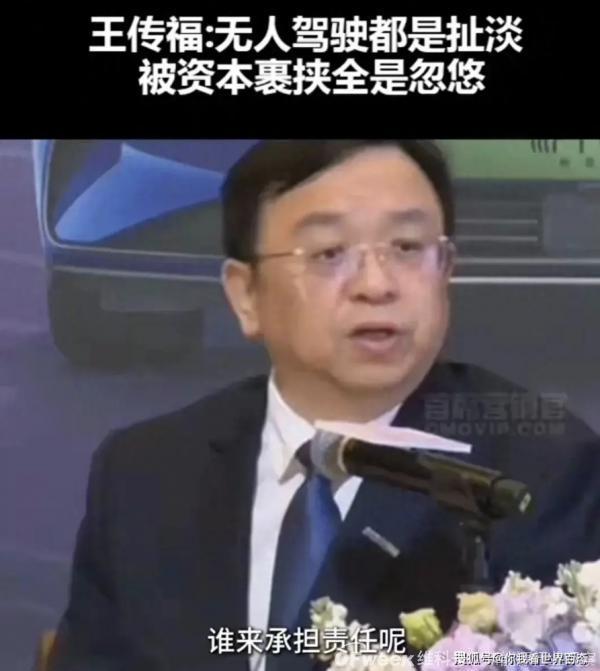
Image/Wang Chuanfu Talks About Autonomous Driving
Source/Sohu: Let's See the World's Myriad Faces & Screenshot from New Energy View
However, the reality is that all automakers are embracing intelligent autonomous driving as a significant technological breakthrough. Including BYD, they are either developing autonomous driving solutions in-house or collaborating with multiple technology companies. Streets in cities like Wuhan are dotted with thousands of commercial autonomous taxis.
Isn't that a slap in the face? It could also be a smokescreen by Mr. Wang. He tells you not to trust autonomous driving, but behind closed doors, he's vigorously researching and partnering with Huawei, hoping to make a splash someday.
Wang Chuanfu also proudly announced that BYD would erase the term 'spontaneous combustion' from the dictionary of electric vehicles. In the digital age, information travels faster than we can imagine. Before Wang's words had even settled, images and videos of BYD vehicles spontaneously combusting flooded the internet. Even vehicles not yet delivered to customers spontaneously caught fire on trailers on highways, unattended and untouched.
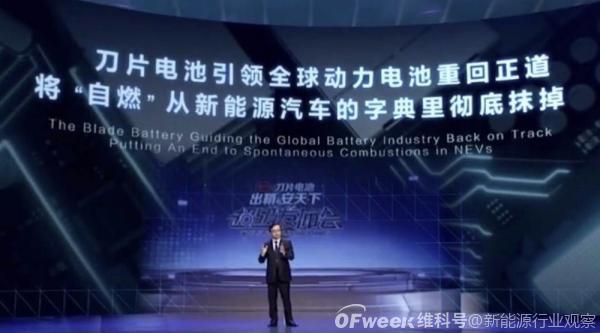
Image/Wang Chuanfu Talks About Blade Batteries
Source/Internet & Screenshot from New Energy View
Zhu Jiangming, CEO of Leapmotor, once stated that Leapmotor would become a leader in intelligent driving. However, Leapmotor's position in this field remains to be consolidated. While promoting its popular models like the Leapmotor C11, C01, and T03, Zhu emphasized their impressive driving range, satisfying consumers' daily commuting needs.
Yet, numerous consumer complaints on online platforms reveal that the actual driving range falls far short of the advertised figures, causing dissatisfaction and doubts among consumers and making Leapmotor executives' claims seem exaggerated.
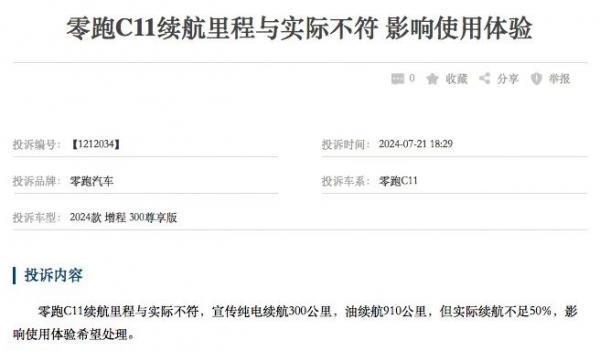
Image/Leapmotor Consumers Complain About Driving Range
Source/Internet & Screenshot from New Energy View
Liu Tao, CEO of IM Motors, has also expressed high expectations for his company's products and technologies in public. He mentioned that IM Motors would be among the first domestic automakers to mass-produce L4 autonomous driving vehicles, launching them in select cities.
Bold claims were made, but the market doesn't cheer with falsehoods. To date, these vehicles haven't been widely promoted in the market, making some of Liu's predictions seem overly optimistic.
Richard Yu, Executive Director of Huawei and CEO of the Intelligent Automobile Solution BU, has made numerous predictions about the future of the automotive market, often with grandiose statements. He once declared that Huawei's Wenjie M5 would outperform Tesla, stating, 'Our car (Huawei Wenjie M5) surpasses Tesla in every aspect, especially in intelligent driving.'
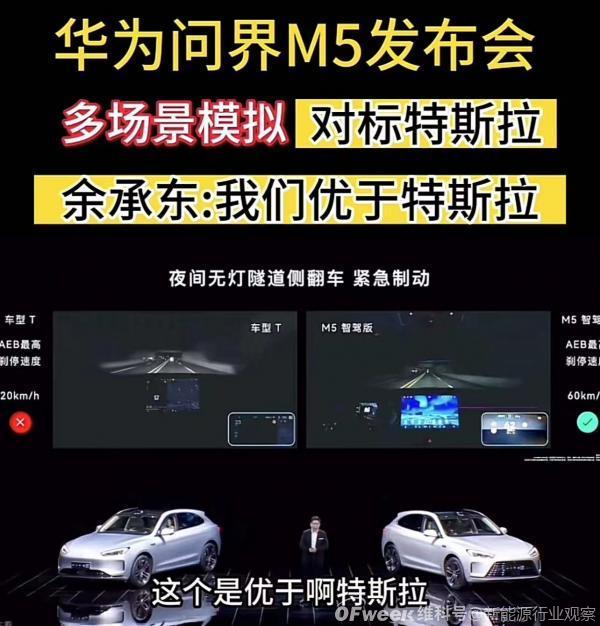
Image/Multi-scenario Simulation at the Wenjie M5 Launch Event
Source/Internet & Screenshot from New Energy View
However, as the product hit the market, Huawei's Wenjie M5 fell short of Tesla's level in intelligent driving technology, contrasting sharply with Yu's bold claims and making his remarks a classic case of 'sacrificing face.' According to the China Association of Automobile Manufacturers, sales of Huawei's Wenjie M5 that year were only about one-tenth of Tesla's Model Y.
At the L9 launch event, Li Xiang, founder of NIO, boldly claimed, 'The NIO L9 is the best family SUV under 5 million.' However, post-launch, the NIO L9 faced frequent quality issues, including malfunctions in its NOA system on highways, raising doubts about NIO's product quality and embarrassing Li Xiang.
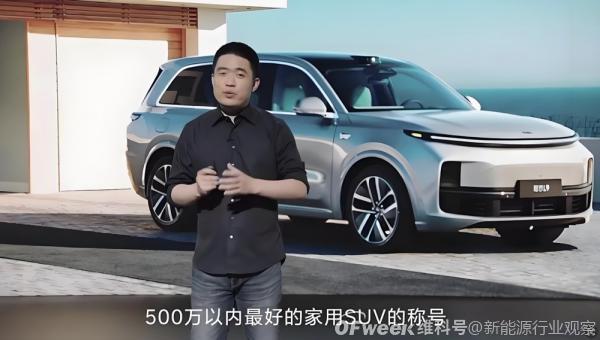
Image/NIO L9 Launch Event
Source/Internet & Screenshot from New Energy View
2. The Logic Behind 'Sacrificing Face' for Money
These instances of 'sacrificing face' reflect the prevalent issue of over-marketing in the automotive industry. On one hand, automakers aim to generate buzz and enhance brand influence by creating topics. On the other hand, this approach often overlooks market complexity and uncertainty, eroding consumer trust in brands.
Behind the phenomenon of 'sacrificing face' lies a profound business logic.
By making bold statements, automakers' executives attract public attention, even if the results ultimately diverge from their words. This tactic temporarily boosts brand awareness and market interest, stimulating potential consumers' interest and influencing their purchase decisions. In the short term, it drives sales growth and tangible economic benefits.
Amid fierce competition, automakers' executives face immense pressure. To seize market share, they adopt aggressive strategies, aiming for short-term gains. Despite controversies, these tactics drive sales and enhance brand value, fulfilling their goal of making money.
Ideal EV has achieved profitability for seven consecutive quarters, while Seres' collaboration with Wenjie has reversed its fortunes, demonstrating that bold claims and actions can lead to financial success.
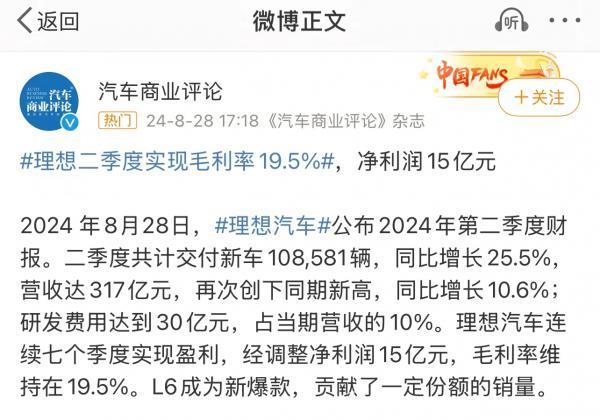
Image/Partial Data from Ideal EV's Second-Quarter Financial Report
Source/Weibo: Automotive Business Review & Screenshot from New Energy View
Although BYD's growth in the new energy sector hasn't been as rapid as expected, Wang Chuanfu's remarks have garnered significant attention and support for the company. BYD's success in the new energy era, despite challenges in the fossil fuel era, is partly attributed to this attention.
In 2021, Li Xiang stated that NIO didn't rely on autonomous driving but later intensified efforts in this area, reportedly securing a leading position.
Perhaps, 'sacrificing face' has become a KPI for automakers' executives. The harsher the slap, the fuller the wallet. Rather than fading into obscurity, it's better to blow one's own horn. 'Sacrificing face' isn't scary; having the opportunity to do so is preferable to being ignored. Ultimately, making money amidst fierce competition is paramount.
For automakers, grandiose claims compensate for subpar products, deceiving as many and for as long as possible. At worst, production can cease.
However, automakers must balance short-term gains with long-term development. Short-term success through over-marketing may bring economic benefits but could ultimately prove costly.
3. The Black Cat and White Cat Theory: Balancing Short-term and Long-term Goals
Whether black or white, a cat that catches mice is a good cat. This adage applies to the automotive industry, albeit with a caveat: In the new era of automaking, pursuing traffic out of pressure is a short-term strategy, not a long-term solution.
Over-marketing cannot sustain consumer interest indefinitely and may damage brand image due to discrepancies between promises and reality. If a new car is hyped as a game-changing technological breakthrough but fails to deliver, consumers will lose trust and confidence, impacting not just the model but the entire brand.
When consumers discover significant discrepancies between automakers' claims and product performance, brand trust erodes. Regaining this trust is challenging and detrimental to long-term development.
Furthermore, pervasive over-marketing deteriorates the market environment, fostering unhealthy competition. Automakers may adopt more aggressive marketing tactics to compete, exacerbating market chaos and confusing consumers, hindering industry growth.
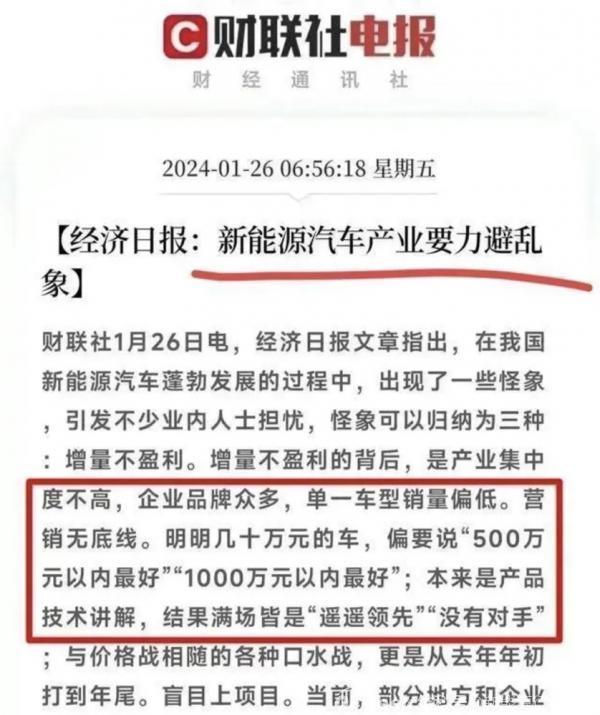
Image/Economic Daily Comments on Over-promotion
Source/Caixin Global & Screenshot from New Energy View
As industry media, we must objectively report industry dynamics, expose false advertising, and guide rational consumer behavior. We should also showcase positive examples, encouraging healthy and sustainable marketing strategies.
Automakers must strengthen internal management, improve product quality and services, and avoid exaggerated claims. By establishing robust quality and after-sales service systems, they can bolster consumer confidence and win market recognition.
Industry associations and regulatory bodies should establish policies and standards to regulate automotive marketing, combat false advertising, and protect consumer rights. They should also foster healthy competition and promote industry growth.
In the long run, the automotive industry must avoid short-sighted behavior and focus on sustainable strategic planning. By enhancing technological innovation and service quality, automakers can strengthen brand competitiveness without relying solely on over-marketing. This approach ensures the industry's long-term growth and societal progress.
Amid rapid industry changes and a complex market landscape, automakers must cautiously handle public statements to avoid embarrassing 'sacrifices of face.' The entire industry must collaborate to foster a healthier, fairer competitive environment, delivering better products and services to consumers. Only then can the automotive industry thrive and contribute to societal progress.







